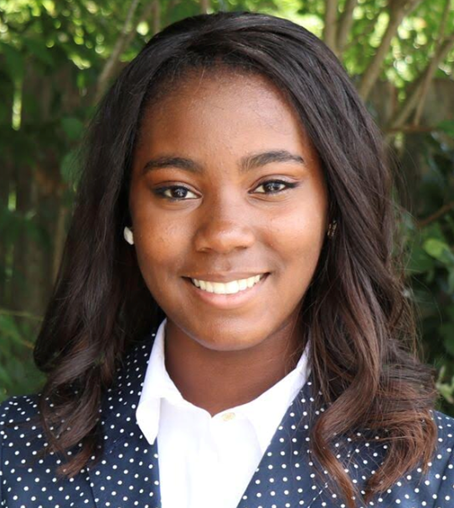
In its essence, business is a pursuit. That means every activity is geared towards the future.
In sales, you are securing long-term alliances and revenue streams. R&D develops products that anticipate the market’s future tastes and needs. Finance invests resources that reflect long-time priorities. And executive leadership positions an organization to chase new consumers and enter new markets. In the process, the here-and-now sometimes suffers in the pursuit of a better tomorrow.
Naturally, business students face this same dynamic. Many times, they’re looking ahead to internships and jobs, checking boxes to fill out resumes, rarely reflecting on the lessons or savoring the relationships. Looking back, that’s what Frances Smyth wishes she had done more as a Marketing and Information Systems major at Boston University’s Questrom School. Focused on the future, Smyth doggedly followed a 5-10 year plan, believing any deviation would mean she’d fallen “off course.” To her, success translated to a 4.0 GPA and executive board positions across several clubs.
Just one problem: she didn’t reach those goals by her senior year.

Frances Smyth, Boston University (Questrom)
“EVERYTHING WORKS OUT IN THE END”
Did that make Smyth a failure? Hardly! Forbes named her a 30 Under 30 Scholar and she was hired by Microsoft as a product marketing manager before she even graduated from BU. She even started her own career coaching website! While Smyth follows the Shakespearean dictum that “All’s well that ends well,” she still wishes that she’d ditched the plan and embraced the experience sooner.
“I spent a lot of time worrying about things that were too far in the future,” she admits. “I’m sure that a lot of other business students feel the same way, especially with the appearance of COVID-19 and its associated disruptions. Truth be told, everything works out in the end. I would encourage students to lean into the unknown. I know it’s terrifying at first to stray from your finely-laid plans, but taking chances builds character, and you’ll meet some amazing people along the way.”
Smyth wasn’t alone in harboring a few regrets at graduation. Not surprisingly, grades hover near the top of the list. For many, grades are a validation of their effort and a magic ticket that’ll open doors to a select few. Over time, many have discovered that grades aren’t the point of school — learning is! That was the takeaway for Ruth Yehyun Bang, who still managed to rack up accolades like Class Scholar during her time as a Supply Chain Management major at Syracuse University.

Alanna Austin, Tulane University (Freeman)
“I would probably worry a little less about the letter grade I was receiving and focus more on the content I was learning,” she explains. “I think, as students, we sometimes get so caught up in striving for an “A” we forget that it doesn’t mean much if we don’t actually work towards retaining that information long-term. To my past self, I say, “Have a little fun while learning and stop beating yourself up when you tried your best”.
ROLL WITH THE PUNCHES
In other words, live in the moment. That’s how Alanna Austin approached her time at Tulane University, where she majored in Marketing and International Relations. That may also be why she graduated this spring knowing she wouldn’t change a thing.
“Life is defined by how we decide to react to what happens to us,” she explains. “When I failed to secure an internship with John Deere, I immediately pivoted and pursued a potentially life-long career as a real estate agent. Entering college, I thought that I had to secure an internship with a major firm to be competitive for law school. However, being a realtor has proven to be invaluable. It offers me the flexibility I demand as a student-athlete, and the work experience I want to be competitive. Not to mention, it gave me the added benefits of constantly building inter-personal relationships in the city I love.”
What decisions do business majors regret most? That’s a question P&Q posed to this year’s Best & Brightest Business Majors. From taking more risks to building relationships with professors, this is what the Class of 2021 would’ve done differently.
1) Stress Less Over Grades: “I would have focused more on the academic and personal growth that was occurring. In no way do I mean that grades are not important, but they are just a small part of the bigger picture. For me, this would’ve meant taking more classes that broadened my horizons and less that I knew I would be good at. It is crucial to take risks, even when – or especially when – you know you might fail. For instance, as I look back on my business school experience, the times that I was most unsure of myself and my ability to figure it all out on my own were the times that I grew the most. It didn’t happen automatically, but through stepping outside of my comfort zone, reaching out to the right people for guidance, and trusting in my own capabilities, I was able to learn new skills and gain confidence in myself.”
Rachel Kassing, Marian University (Byrum)
“Stop stressing over a GPA. It’s important to use that number to help you get a foot in the door. Once you start on a trading floor it doesn’t matter where you came from or what grades you got.”
Zackary Hajjar, Fordham University (Gabelli)

Blake Nolan Bradley, Indiana University (Kelley)
2) Get To Know Professors Outside Class: “Instructors have so many lessons to share that extend far beyond the textbook and learning for their experiences can be just as valuable as anything. Mentorship is extremely important to me and many students can find mentors through the instructional team.”
Brennen Feder, University of Arizona (Eller)
3) Think Shorter Term: “Being in business school puts a lot of pressure on students to think long term about “Where we want to be in 30 years” or “What do we want to be when we grow up,” but this mindset dramatically diminishes the beauty of the now. Realistically, you can make the best 30-year plan known to man, but it is highly likely something in your plan will change unexpectedly, derailing your “perfect plan” and leaving you feeling lost.
Through my experience at Kelley, I’ve learned that the better plan is to maximize excellence in the present moment and trust that success in the “now” will ensure future success. With this strategy, I believe you will experience more fulfilling friendships, longer lasting memories, and less stress both in the short and long term.”
Blake Nolan Bradley, Indiana University (Kelley)
4) Stay Focused: “Competitive runners are taught to look ahead, never side-to-side or behind because it can cause them to falter or lose their stride. I think this ideology is transferable to many aspects of life as well. In business school, surrounded by my overachieving friends, it is more than easy to become distracted by the paths of my peers. If I could do college all over, I would turn my head straight, towards my interests, what excites me, and what truly brings me joy, and I would never waver from that again.”
Sydney Dixon, Indiana University (Kelley)











Questions about this article? Email us or leave a comment below.